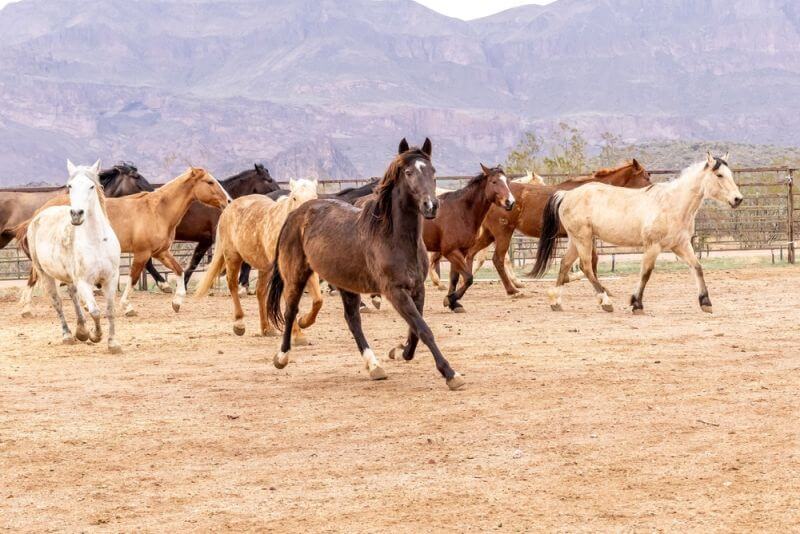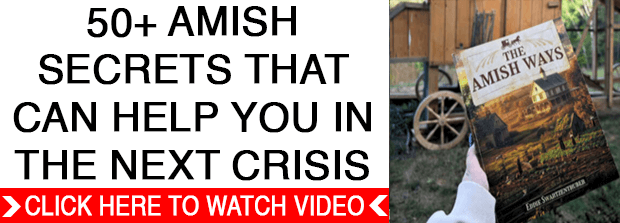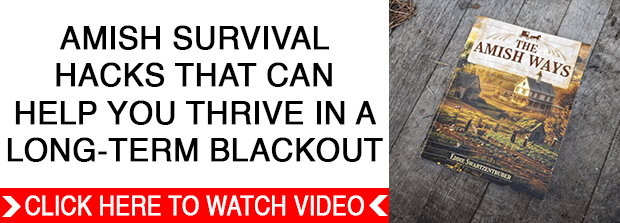I have always loved westerns. There was just something basic and fundamental about their life, as it was portrayed on screen. The themes were all about good verses evil; and the good guy always won. But there’s an even greater connection that both my dad and I had with those men from the Old West. That was, we could easily see ourselves in that life.
Now, I’m not a cowboy; but I have spent some time working on a working cattle ranch. My dad went even farther than that, as he was a farrier in his later years, shoeing horses. He wasn’t just any farrier either; he did hot shoeing, making shoes for anything from draft horses to race horses, with prescription corrective shoes thrown in as well. He was a man who was very comfortable around horses and I grew up with that legacy, learning to ride and enjoying looking at the countryside from between my horse’s ears.
Let me clarify something here. Getting up on a worn-out old nag and following a trail guide might be riding to some; but anyone who really rides would probably just scoff at that. Every real rider can point back to the day where they learned how to ride. I’m not talking about climbing up in the saddle and going around the corral; I’m talking about the day when they got on an ornery horse and had to go round and round a few times with that horse, learning how to be the boss, and then showing that horse that you were the boss. Yeah, I had my day like that.
I was a teenager at the time, and like any other teen, I wouldn’t admit I couldn’t do something. We were members of a “dude ranch” style club (where my dad had a contract to shoe the horses) and that’s where I would ride. Well, one day I went down to the corral and asked for a horse. The hostler responded, telling me that all the horses were out, except for one. That one wasn’t exactly mean; but you’d better know what you’re doing before you climb up in the saddle. Been a teen, I told the hostler that I could ride that horse… yeah, right.
The horse was smarter than I, waiting until we were over the hillcrest, where nobody could see us. It then decided we were in a rodeo and it was time for the bucking bronco competition. Like I said, I learned to ride that day… and that horse is the one who taught me.
Ever since then, I have thought that a horse would be the ideal survival partner. As time went on and the term “bugging out” became popular, my definition shifted and I’ve thought that the horse would be the ideal bug out vehicle. I still don’t own one; but I wish I did.
Why Horses are Excellent Bug Out Vehicles
There are a number widely recognized of problems with bugging out. We know the veracity of these problems, because they’ve been seen and documented in previous bug outs; specifically mass evacuations to get out of the path of a hurricane. without spending a lot of time on the subject, the biggest problems are that our roads aren’t designed to handle that much traffic and there isn’t enough refueling capacity to handle the mass exodus of fuel-hungry vehicles.
Neither of these problems affect horses. Horses don’t eat gas; although I’ve known a few that make plenty of it. While they’d rather have more than just grass to eat, they do just fine on the grass they can find. So, unless you’re bugging out across a desert, your horse won’t have any problem keeping itself fueled up. As for the roads, horses would rather avoid them, walking on softer ground, even though shoes allow them to walk on pavement.
Horses can also go a lot of places that cars, trucks, and four-wheel-drive vehicles can’t go. They are narrower than any modern vehicle, except a motorcycle, allowing them to go down paths in the woods, where there are no roads. If a deer has walked that trail, chances are a horse can too.
Beyond being great bug out vehicles, horses could be extremely useful for local transportation, in the event of a major crisis. When nobody will be able to get gasoline for their cars, trucks and SUVs, horses will still be running… or at least walking. Watch out though; there will be those who will steal those horses from whoever has them.
Limiting Factors in Using Horses
This is not to say that horses are perfect in every way. There are some limiting factors in using horses as bug out vehicles. For one thing, they can only carry one passenger, with little luggage. While the cowboys in the Old West may only own one horse, they carried very little luggage with them. Just a bedroll and a pair of saddlebags. When they were traveling from ranch to ranch, they traveled slowly, giving their horses lots of rests. They would even walk at times, so that the horse didn’t have to carry their weight.
For a bug out, you would probably need two horses for every member of your family old enough to ride one. Half of those horses would be pack horses, carrying your bug out bags, along with other luggage, tools and supplies. You might be able to get by with less pack horses; but if you do, you’ll be limiting what you can take with you back to the bug out bag level.
Of course, everyone in your family or survival team would have to know how to ride, as well as how to care for their horse. Horses’ hooves need cleaning, to remove mud, thorns, small stones and other things that get caught in their shoes. When you stop, the horses need to have their saddles tripped (pack saddles too) allowing the horses to roll, then brushing out their coats. Hair knots, which are a painful hassle for women, are a much bigger problem when they get caught under a horse’s saddle, causing sores. But the biggest maintenance problem you’ll have, is being able to trim your horses’ hooves when the time comes and shoe them with fresh shoes.
There Are Problems with Owning Horses
Before you rush out to buy some horses, I’d suggest counting the cost. Horses are expensive these days, much more so than they were when I was young. Not only are they expensive to buy, they’re expensive to keep as well. The average horse will eat about a third of a bale of hay per feeding, along with a coffee can full of oats or other grain-based feed.
Then there’s the problem of where to keep them. Horses need room to move around, getting exercise and feeding off the naturally growing plants. Unless you have several acres, about the best you’re going to be able to do is keep them in a stall or small corral. That’s not going to be the best for your horses. Neither, I might add, will the smell of those horses endear you to your neighbors.
This is the main reason why I don’t have any horses. I’d love to have them; but I just plain don’t have room, even though I have a half-acre lot in our small town.
Horses are also time-intensive. Training is a constant thing. I don’t mean “breaking” the horse over and over again, I mean working the horse, riding it, so that it will be accustomed to having a rider on its back and responding to that rider’s commands.
I remember years back, when we were visiting a family who owned a horse. My kids wanted to ride that horse and they let them. Or, I should say that they let my kids get up in the saddle. None of them could get that horse to do a thing. No matter what they tried, it wouldn’t go right, left forward or anything else. It just stood there, looking in the window of the house.
Now, I have to say that wasn’t the horse’s fault. Not only had they not been working that horse, to keep it in training; but my kids didn’t know how to ride. They thought that riding a horse was like riding one around and around in circles, like at the fair. Being in a corral is the same thing, isn’t it?
So, I got up in the saddle and reminded the horse how to obey simple commands, like turning the horse with the reigns. Once I had done that, the kids could ride it… sort of.
My point here is that you don’t want to commit to horses as your means of choice for bugging out, unless you are willing to put the time into it that’s needed. But if you are willing to put that time into working with a horse, you’ll not only find that the relationship you build with that horse will be a lot like the relationship with a dog (except the horse is smarter). You’ll also find the joy of just plain riding, especially if you live out in the country or in the mountains.























































































Three of the couples that are part of our survival group have a total of 10 horses. My wife and I have 2 mules. One of the horse owners is a part time blacksmith. He has experience in shoeing and hoof care. This post was one of the best posts ever on this site but it could have included much more info. More info on the care and info on how to recognize the early signs of sickness and injury. We have the mules not only to ride but to carry heavy loads. I do agree that horses and mules will be targets for theft. Also they my give away your position if you are hiding from the “Zombies” (read bad guys). Also horses and mules need a barn and a secure corral. Make sure your horse is not gun shy, lots of horses and mules are very gun shy along with other loud sounds. You will need to include feed in your garden, horses and mules can’t live on grass alone.
I’m a bicycle racer. I raced a horse. We both got up to forty miles per hour. Me, just briefly, the horse for a mile. After that, I could pass the horse because my race time for a hundred miles is four hours. Bicycling is very energy efficient. It’s stealthy quiet. It can transport a load. Mountain bicycles have off-road capability. Terrain can be overcome as it can be floated across a river or pulled up a cliff, so it even has evasive capabilities. When I was a teenager, I was a specialized bicycle wheelbuilder and mechanic for professional bicycle racers, so the bicycle lends itself to repairs that I can do. Of course, I have done a lot of repair and maintenance for motor vehicles and can likely keep mine running, but not all will be repairable after parts are no longer available. In contrast, I have plenty of spare parts for my bicycles.
Sailboats have been proven over history and are only much better and more capable now. They have immense preparedness advantages — no dependency upon a functioning society for fuel, not vulnerable to road choke points for bandit ambushes that can be just around the next corner. Sailboats open up the world’s two hundred twenty thousand miles of coastline and inland navigable waterways to access up to a hundred thirty five nations.